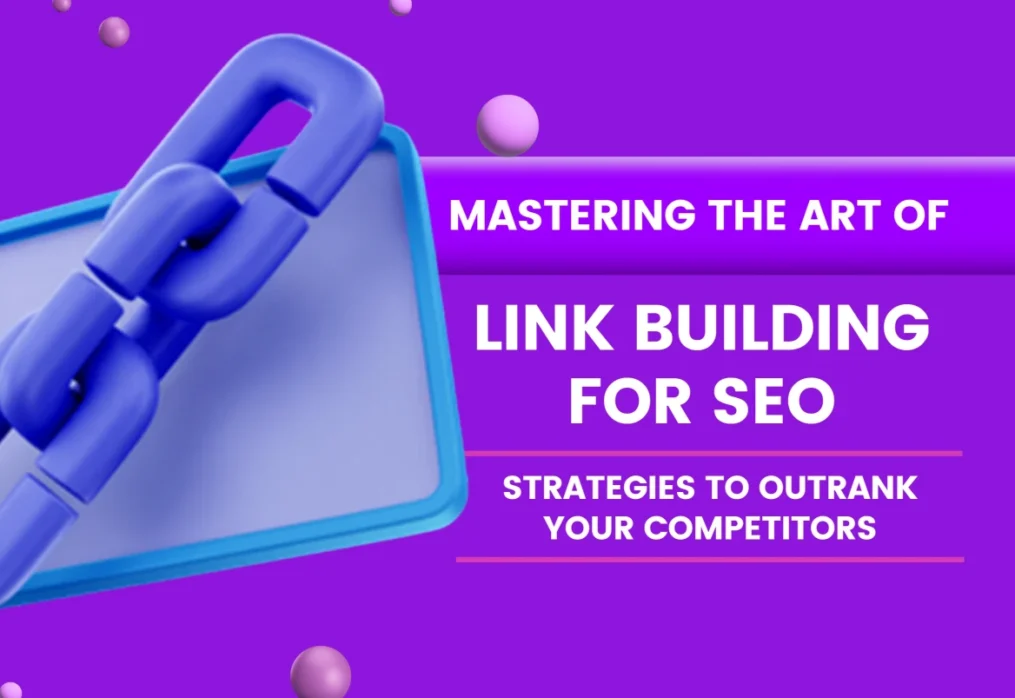Mastering The Art of Link Building for SEO: Strategies to Outrank Your Competitors
In the ever-evolving world of SEO, link building remains a crucial strategy for getting your website to rank higher on search engine results pages. But mastering the art of link building is no easy feat. In order to outrank your competitors, you need to have a strategic approach that not only builds high-quality backlinks but also establishes your website as an authoritative source in your industry.
This article delves into the strategies and techniques you need to adopt in order to master the art of link building for SEO. From understanding the importance of anchor text and building relationships with influencers to leveraging guest blogging opportunities and monitoring your backlink profile, we’ll cover all the essential aspects of an effective link building campaign.
By implementing these proven strategies, you’ll be able to increase your website’s visibility, attract more organic traffic, and ultimately outrank your competitors in search engine rankings. So, let’s dive in and discover the key strategies to take your link building efforts to the next level.
The Importance of Link Building for SEO
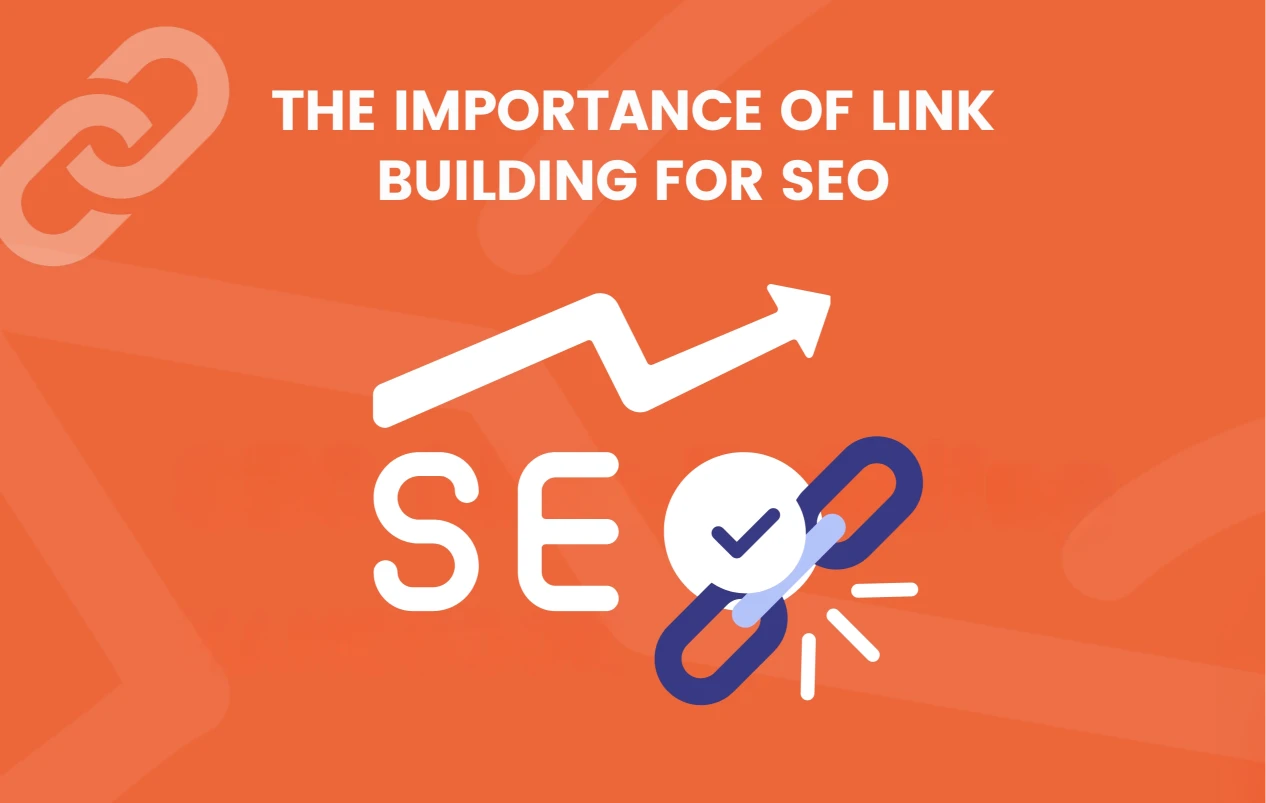
Link building is a fundamental aspect of SEO that search engines use to determine the credibility and relevance of your website. When high-quality websites link back to your site, search engines view this as a vote of confidence, indicating that your content is valuable and trustworthy. As a result, your website’s authority and visibility increase, leading to higher rankings in search engine results.
Link building is not just about quantity; it’s about quality. Building a strong backlink profile requires acquiring links from authoritative and relevant websites in your industry. These links serve as pathways for search engine crawlers to discover and index your website, helping you gain more visibility and organic traffic.
To ensure your link building efforts are effective, it’s important to focus on acquiring natural links rather than resorting to spammy tactics. This means creating high-quality content that others find valuable and want to link to organically. It also involves building genuine relationships with influencers and industry leaders who can provide valuable backlinks to your website.
To stay ahead in the world of SEO in 2024, it’s essential to understand that the landscape is constantly changing, with link building remaining a cornerstone of a strong digital presence.
Understanding The Different Types of Links

When it comes to link building, it’s essential to understand the different types of links and how they impact your SEO efforts.
1. Internal Links
These are links that point from one page on your website to another page on the same website. Internal links help search engines understand the structure of your website and navigate between different pages. They also distribute the authority and relevance of your backlinks throughout your site, improving the rankings of individual pages.
2. External Links
Also known as outbound links, these are links that point from your website to another website. External links are important for providing additional value to your readers, as they can direct them to authoritative sources of information. When linking externally, it’s crucial to choose reputable websites that are relevant to your content and have high domain authority.
3. Backlinks
Backlinks are incoming links from other websites to your website. These are the most important type of links for SEO, as they signal to search engines that your content is valuable and worth ranking higher in search results. Focus on acquiring high-quality backlinks from authoritative websites in your industry to improve your website’s authority and rankings.
Understanding the different types of links will help you develop a comprehensive link-building strategy that takes advantage of each type’s unique benefits.
When optimizing your site for Google algorithm updates in 2023, consider how different types of links can uniquely contribute to your SEO strategy, ensuring resilience against changes in search engine algorithms.
Best Practices for Internal Link Building
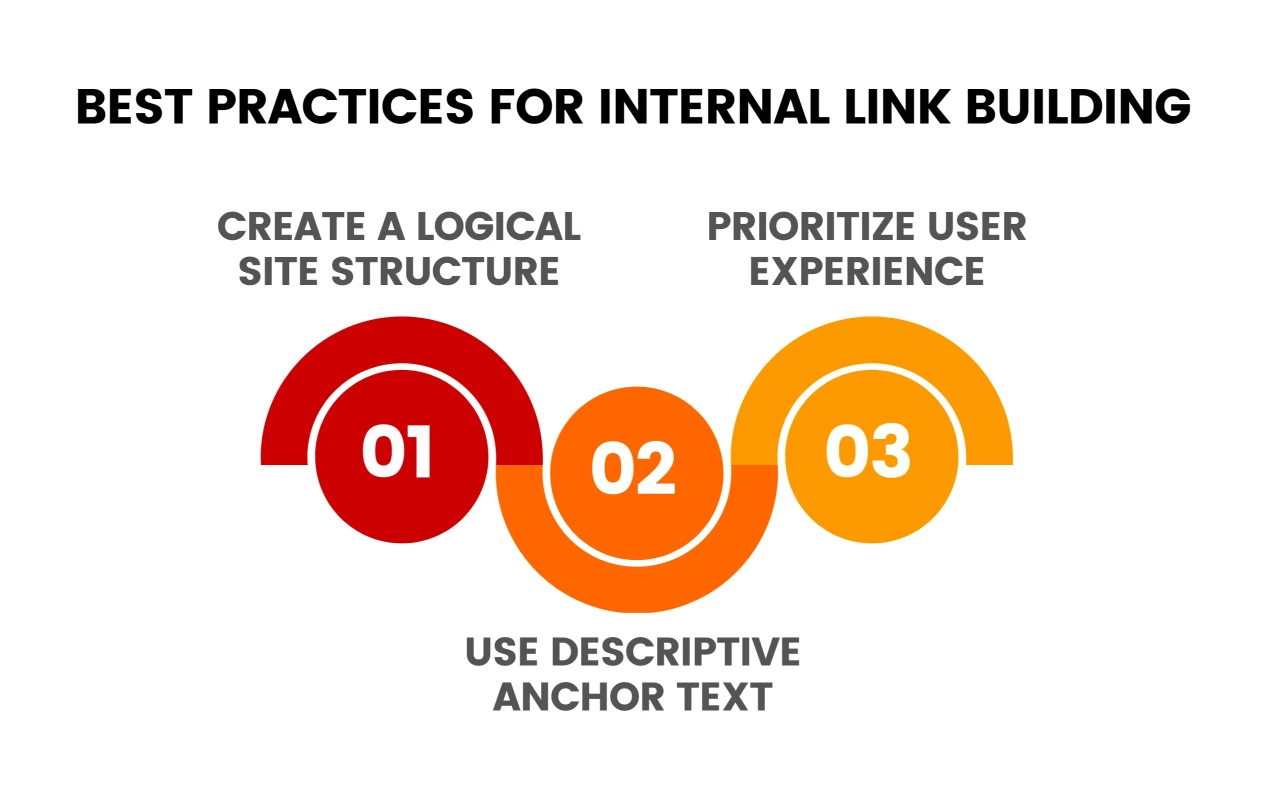
Internal link building plays a crucial role in improving your website’s SEO. By strategically linking relevant pages within your site, you can guide search engine crawlers to discover and index your content more effectively. Here are some best practices for internal link building:
1. Create a Logical Site Structure
Organize your website’s content into categories and subcategories, ensuring that each page is linked to its relevant category and higher-level pages. This helps search engines understand the relationships between different pages and improves overall crawlability.
2. Use Descriptive Anchor Text
When creating internal links, use anchor text that accurately describes the content of the linked page. Avoid using generic phrases like “click here” or “read more.” Instead, use keywords that are relevant to both the linked page and the page it’s linking from. This helps search engines understand the context and relevance of the linked content.
3. Prioritize User Experience
Internal links should not only be beneficial for SEO but also enhance the user experience. Make sure the links are placed naturally within the content and provide additional value to readers by directing them to related or relevant information.
By following these best practices, you can strengthen the internal linking structure of your website, improve crawlability, and enhance the overall user experience.
For specialized businesses, like those in healthcare, mastering SEO for dentists involves strategic internal linking to highlight services and expertise, driving both user engagement and search engine visibility.
Effective Strategies for External Link Building
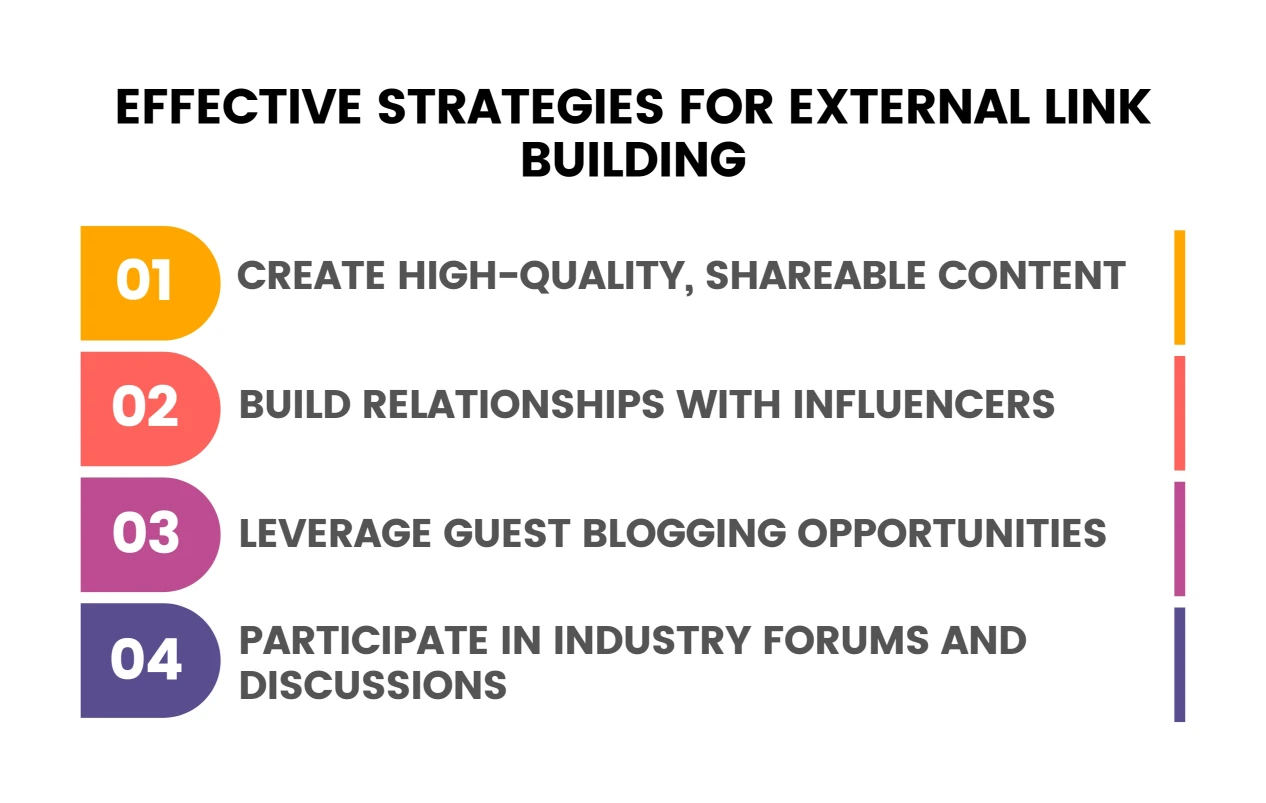
While internal link building focuses on optimizing your website’s structure and navigation, external link building involves acquiring backlinks from other websites. Here are some effective strategies to boost your external link building efforts:
1. Create High-Quality, Shareable Content
The foundation of any successful link building campaign is creating content that is valuable, unique, and shareable. Develop content that provides in-depth insights, solves problems, or offers a fresh perspective on a topic. When others find your content valuable, they are more likely to link back to it.
2. Build Relationships with Influencers
Influencers and industry leaders have established authority and a wide network of followers. Engage with them through social media, commenting on their posts, and sharing their content. Building genuine relationships can lead to valuable backlink opportunities as influencers recognize your expertise and value.
3. Leverage Guest Blogging Opportunities
Guest blogging allows you to showcase your expertise and gain exposure to a new audience. Identify reputable websites in your industry that accept guest posts and pitch them unique and high-quality content ideas. In return, you can include a link back to your website within the author bio or content itself, driving traffic and increasing your website’s authority.
4. Participate in Industry Forums and Discussions
Engaging in relevant online discussions and forums allows you to establish yourself as an authority in your industry. By providing valuable insights and contributing to the conversation, you can attract attention and potentially earn backlinks from others who find your contributions valuable.
By implementing these strategies, you can expand your network, acquire high-quality backlinks, and enhance your website’s authority and rankings.
How to Conduct a Link Audit
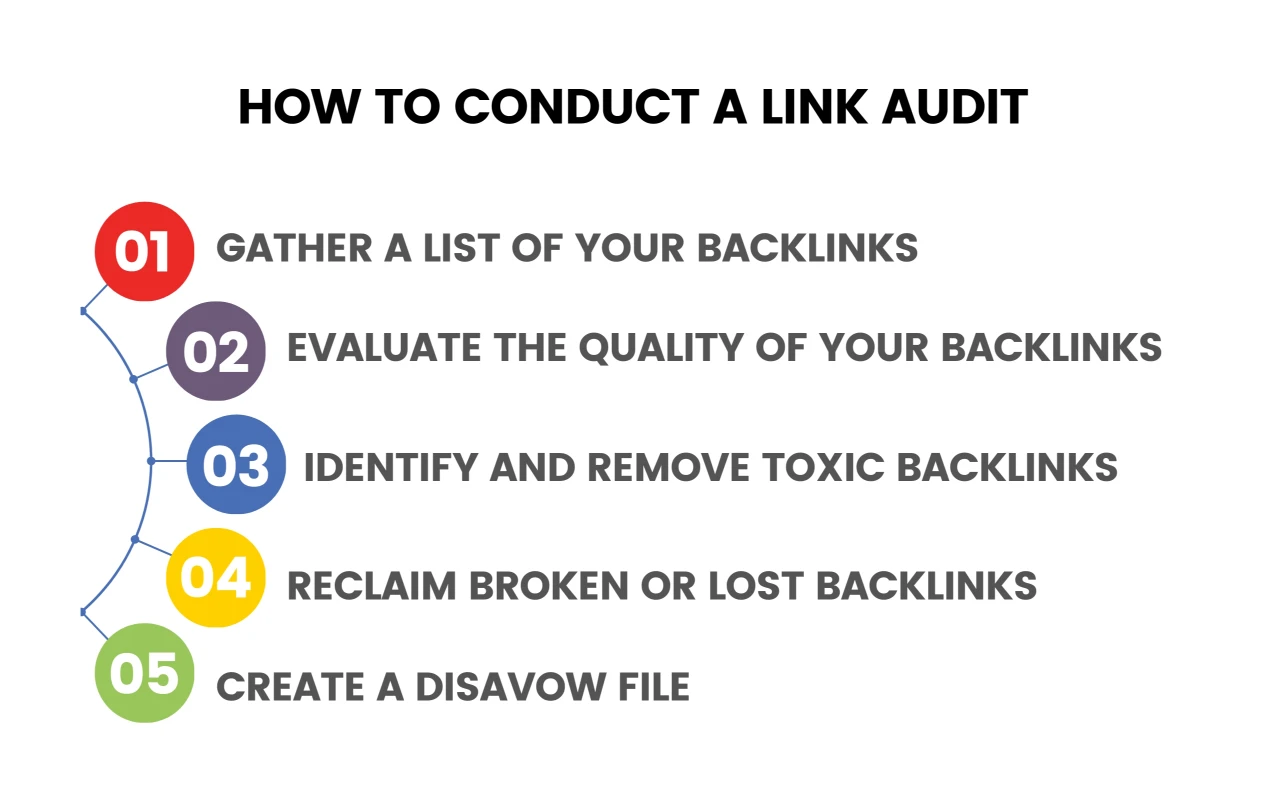
A link audit is an essential process in evaluating the health of your website’s backlink profile. It involves analyzing the quality and relevance of your existing backlinks to identify any potential issues that may be affecting your SEO efforts. Here’s how to conduct a link audit:
1. Gather a List of Your Backlinks
Use tools like Google Search Console, Ahrefs, or Moz to compile a comprehensive list of all the websites that link back to your site.
2. Evaluate the Quality of Your Backlinks
Assess the authority and relevance of each backlink by considering factors such as domain authority, page authority, anchor text, and the context of the linking page. Look for any low-quality or spammy backlinks that may be harming your website’s rankings.
3. Identify and Remove Toxic Backlinks
Toxic backlinks are links from low-quality or spammy websites that can negatively impact your website’s SEO. Use tools like Google’s Disavow Tool or reach out to webmasters to request the removal of these toxic backlinks.
4. Reclaim Broken or Lost Backlinks
Over time, some of your backlinks may become broken or lost. Identify these broken links and reach out to the webmasters to request the necessary corrections or replacements.
5. Create a Disavow file
If you’re unable to remove toxic backlinks manually, create a disavow file and submit it to Google’s Disavow Tool. This tells Google to ignore those specific backlinks when evaluating your website’s authority and relevance.
A comprehensive link audit helps ensure that your backlink profile is clean and free from any harmful or irrelevant links, allowing you to maintain a strong and healthy SEO strategy.
Tools to Help with Link Building
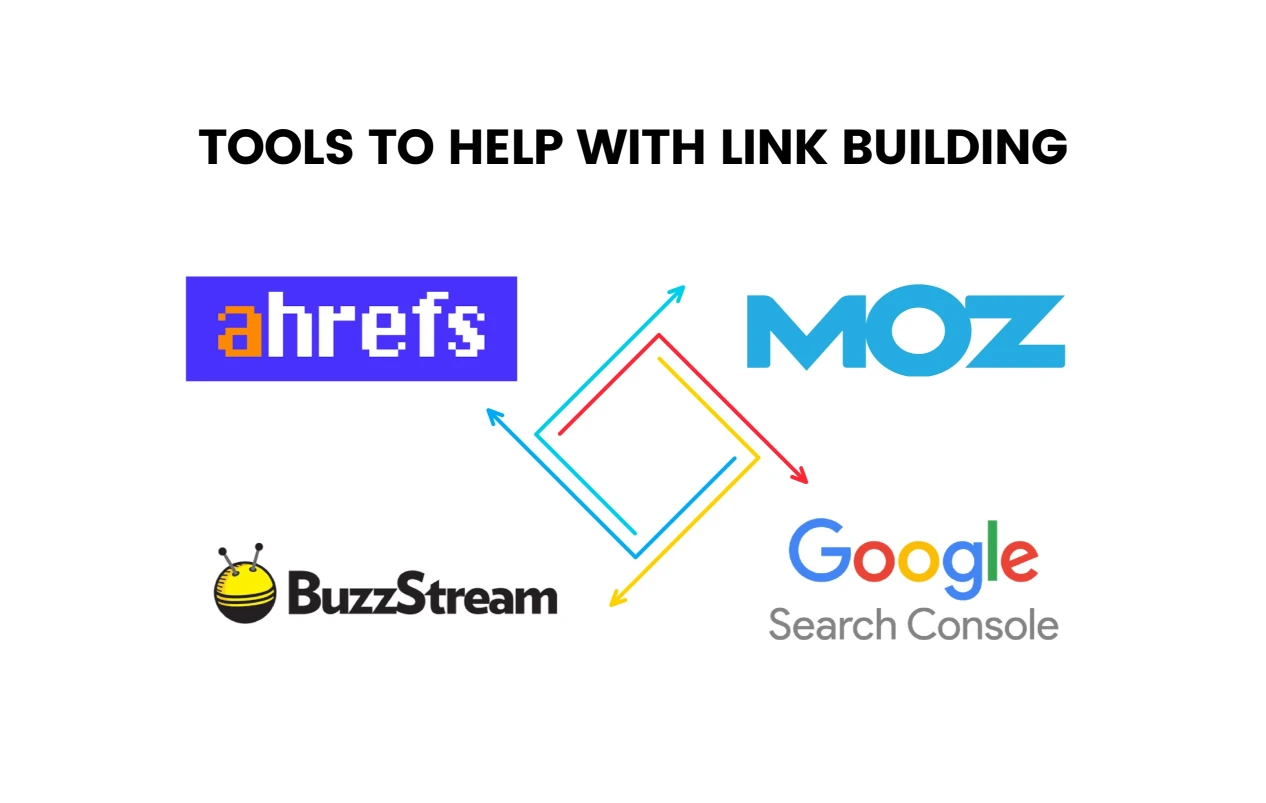
There are numerous tools available to assist you in your link building efforts. These tools can help you identify potential link opportunities, monitor your backlink profile, and track your overall SEO performance. Here are some popular link building tools:
1. Ahrefs
A comprehensive SEO tool that offers insights into backlinks, keyword rankings, and competitor analysis. Ahrefs provides valuable data to help you identify link opportunities and monitor your website’s SEO performance.
2. Moz
Another powerful SEO tool that offers link analysis, keyword research, and rank tracking features. Moz’s Link Explorer provides detailed insights into your backlink profile, helping you identify areas for improvement.
3. BuzzStream
A tool that streamlines the process of building relationships with influencers and managing your outreach campaigns. BuzzStream allows you to find contact information, send personalized emails, and track your progress, making it easier to build valuable connections.
4. Google Search Console
A free tool provided by Google that allows you to monitor your website’s performance in search results. It provides data on your backlinks, organic search traffic, and indexing issues, helping you optimize your website for better rankings.
By utilizing these tools, you can streamline your link-building efforts, track your progress, and make data-driven decisions to improve your SEO strategy.
Considering link building and SEO services in Maryland? It’s crucial to select a partner equipped with the right tools and expertise to elevate your website’s search engine ranking effectively.
Building Relationships for Link Building
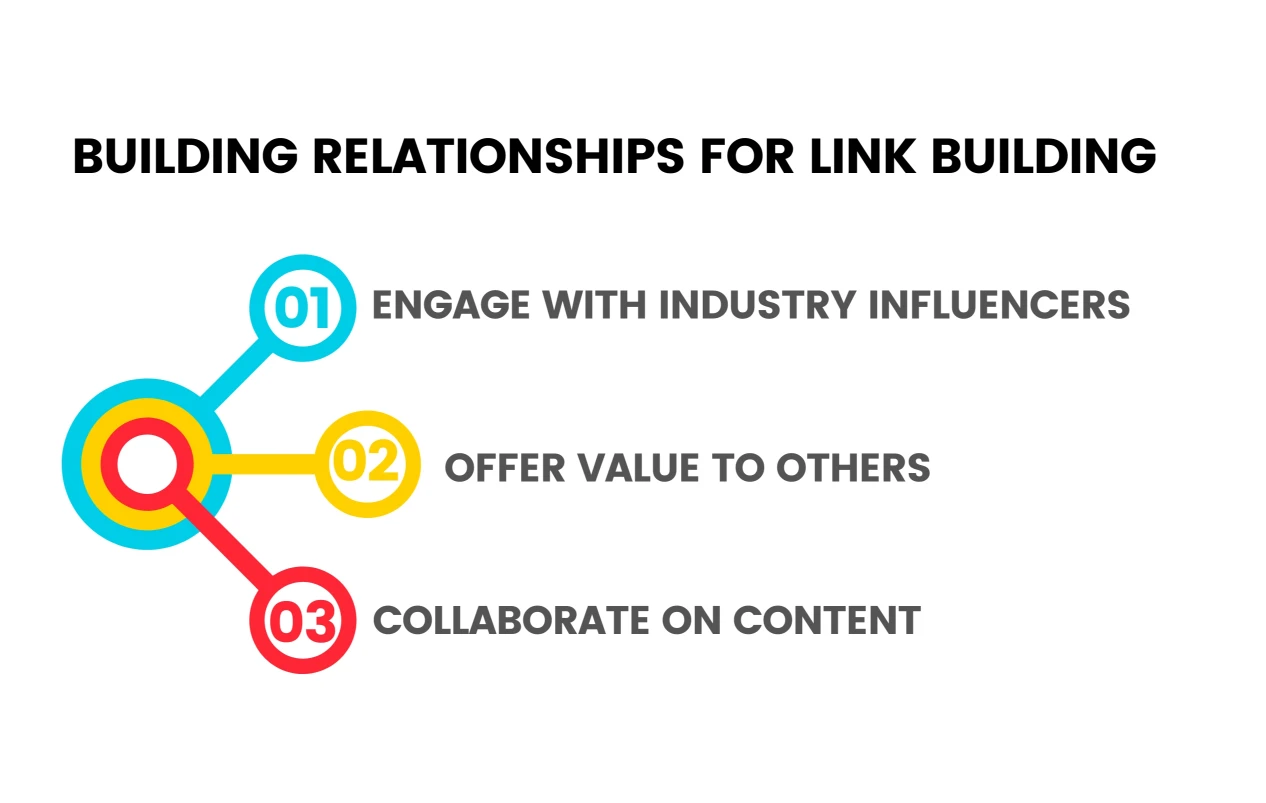
Building genuine relationships with influencers, industry leaders, and webmasters is crucial for successful link building. Here are some tips to establish valuable relationships:
1. Engage with Industry Influencers
Follow influencers on social media platforms, comment on their posts, and share their content. By engaging with them, you can gain visibility and build rapport.
2. Offer Value to Others
Provide value to influencers and webmasters by sharing their content, mentioning them in your own content, or offering them assistance when needed. This helps establish a mutually beneficial relationship.
3. Collaborate on Content
Collaborate with influencers and industry leaders to create valuable content together. This not only helps you gain exposure to their audience but also increases the likelihood of them linking back to your website.
Remember, building relationships takes time and effort. Be genuine, respectful, and patient in your interactions, and focus on providing value to others.
Influencer marketing for socials is not just about broadening your reach; it’s a powerful tool for establishing connections that can lead to high-quality backlinks, enhancing your SEO efforts.
Guest Blogging for Link Building
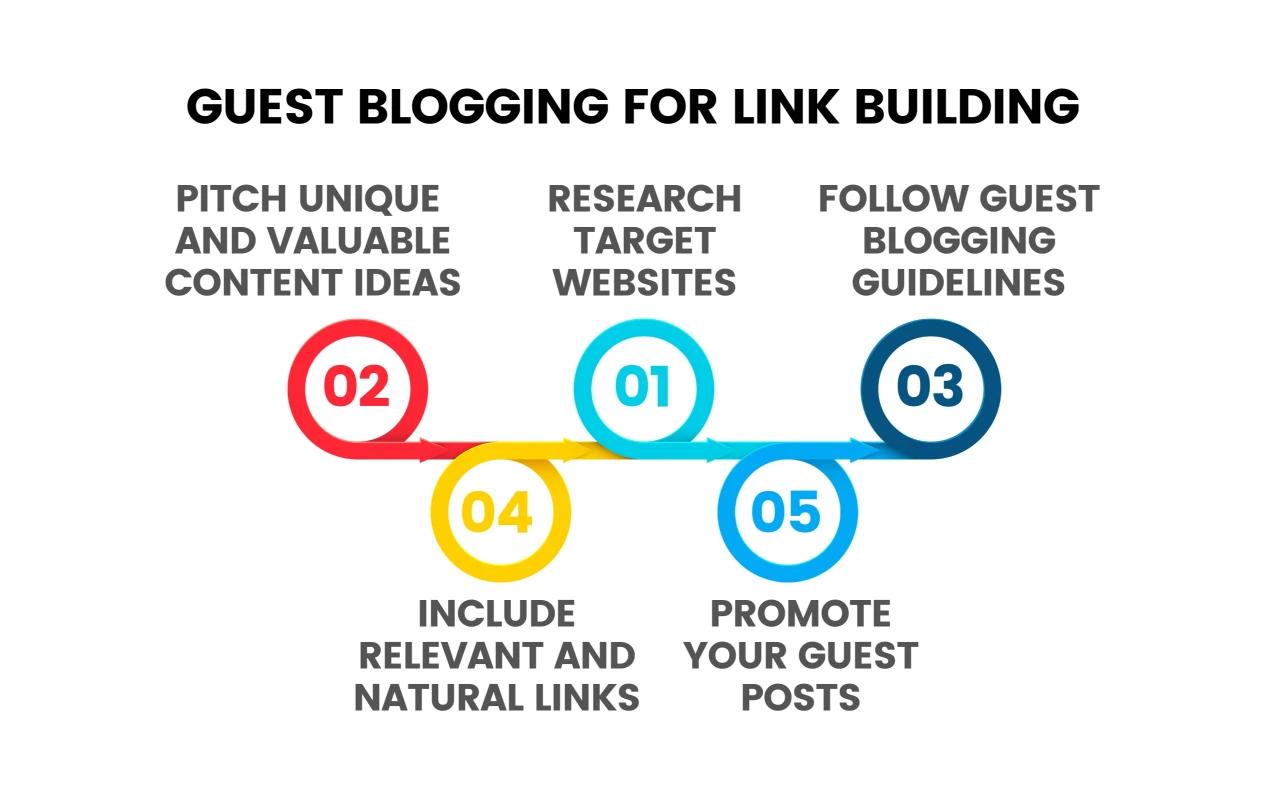
Guest blogging is a powerful strategy for acquiring high-quality backlinks and expanding your reach. Here are some tips to make the most of guest blogging opportunities:
1. Research Target Websites
Identify reputable websites in your industry that accept guest posts. Look for websites that have a strong readership and align with your content niche.
2. Pitch Unique and Valuable Content Ideas
When reaching out to potential guest blogging opportunities, present them with unique and valuable content ideas that resonate with their audience. Show them how your content can provide value and address their readers’ pain points.
3. Follow Guest Blogging Guidelines
Each website may have specific guidelines for guest contributors. Familiarize yourself with these guidelines and ensure that your content meets their requirements.
4. Include Relevant and Natural Links
When writing your guest post, include relevant and natural links back to your own website within the content or author bio. These links provide a direct pathway for readers to explore more of your content and improve your website’s visibility.
5. Promote Your Guest Posts
Once your guest post is published, promote it through your own social media channels and email newsletters. This helps drive traffic to the host website and increases the visibility of your content.
By leveraging guest blogging opportunities, you can establish your authority, gain exposure to new audiences, and acquire valuable backlinks to boost your website’s SEO.
Exploring guest blogging opportunities is a strategic move to demonstrate your thought leadership and secure valuable backlinks, especially when targeting SEO strategies for a local business.
Avoiding Common Link Building Mistakes
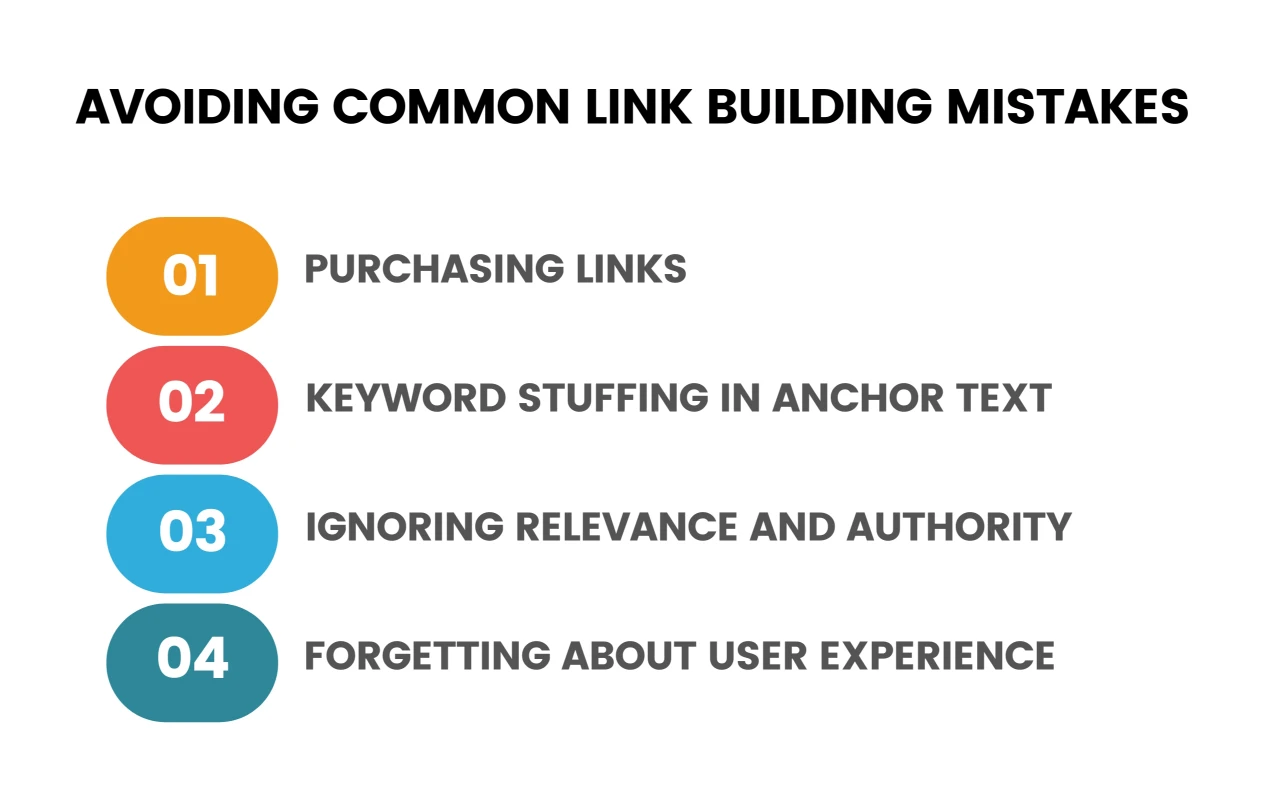
While link building can be highly effective for improving your website’s SEO, it’s important to avoid common mistakes that can harm your rankings. Here are some mistakes to avoid:
1. Purchasing Links
Buying links from low-quality or spammy websites is a black hat SEO tactic that can result in severe penalties from search engines. Focus on acquiring natural, high-quality links through legitimate means.
2. Keyword Stuffing in Anchor Text
Overusing exact-match anchor text with your targeted keywords can be seen as manipulative by search engines. Instead, focus on using natural and descriptive anchor text that accurately represents the linked content.
3. Ignoring Relevance and Authority
Acquiring backlinks from irrelevant or low-authority websites provides little value to your SEO efforts. Focus on building relationships and acquiring links from reputable and relevant websites in your industry.
4. Forgetting about User Experience
Link building should not be solely focused on SEO; it should also enhance the user experience. Ensure that your links are placed naturally within the content and provide additional value to your readers.
By avoiding these common mistakes, you can maintain a strong and ethical link building strategy that improves your website’s authority and rankings.
Conclusion: Taking Your SEO to The Next Level with Link Building
Mastering the art of link building for SEO requires a strategic and holistic approach. By understanding the importance of link building, leveraging various types of links, implementing best practices for internal and external link building, conducting regular link audits, and building relationships with influencers, you can take your SEO efforts to the next level.
Remember to create high-quality, shareable content, prioritize user experience, and avoid common link building mistakes. By doing so, you’ll be able to increase your website’s visibility, attract more organic traffic, and outrank your competitors in search engine rankings.
As the world of SEO continues to evolve, link building remains a fundamental strategy that can significantly impact your website’s success. By implementing the strategies outlined in this article and staying up to date with the latest trends and best practices, you’ll be well-equipped to master the art of link building and achieve long-term SEO success.
As you refine your SEO strategy, remember that mastering link building is an ongoing process, requiring adaptability and a keen eye for the ever-evolving SEO landscape.
